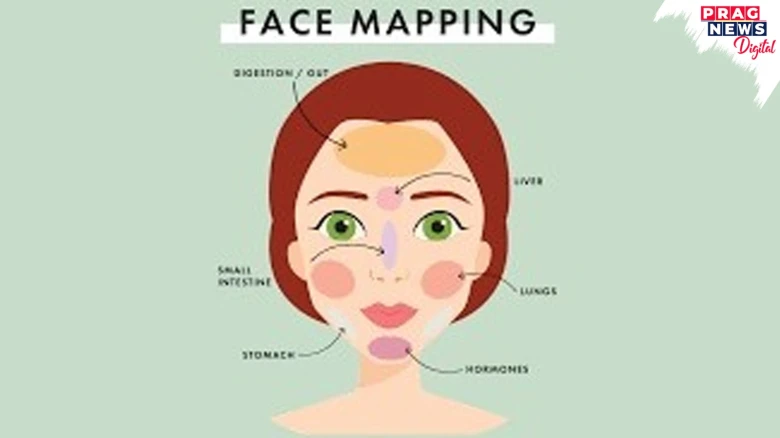North East

Facial aesthetics dating back to the principles of traditional Chinese medicine attribute some skin imperfections to certain body organs…
Digital Desk: Skin problems cannot be concealed. This is generally known as acne, which is a skin condition understood to originate from the blockage of the pores by oil, dead skin, or bacteria. There are two types of acne, each pore hosting a follicle with hair and a gland that secretes sebum to prevent the skin from cracking. As we have seen, when this system is disrupted, breakouts ensue.
Facial aesthetics dating back to the principles of traditional Chinese medicine attribute some skin imperfections to certain body organs. This face analysis called mien shiang, or “face reading,” presupposes that, for example, slanted acne or other skin problems in certain zones of the face will reflect.
This practice, known as mien shiang, or ‘face reading,’ implies that a malfunction of some field reflects skin blemishes in the corresponding area of the face. Like Dermalogica’s skin-mapping system, contemporary dermatological face mapping fuses this practice with science.
Forehead (Zones 1 & 3): It has references to the digestive system and bladder. The breakdowns could be due to poor dieting, poor water intake, or stress-related
issues. Most importantly, inadequate washing of makeup or shampoo may also cause blockage of pores.
Between Eyebrows (Zone 2): Associated with the liver. Alcohol, oily foods, or late supper might cause problems here.
Temples/Ears (Zones 4 & 10): Represent the kidneys. Sweating, a diet rich in salt or caffeine, and improper use of a cell phone can lead to the appearance of acne.
Cheeks (Zones 5 & 9): They are associated with the respiratory system. Acne or redness can result from using a phone that has come into contact with smoke, pollen, or bacteria from the hands.
Eyes (Zones 6 & 8): connected to the kidneys. The presence of dark circles or pouches around the eyes means you have not been consuming enough water or are on an unhealthy diet.
Nose (Zone 7): Relates to the heart. They are sometimes used to diagnose high blood pressure or cholesterol problems if skin becomes red.
Chin/Jawline (Zones 11–13): To some extent, hormonal or reproductive health. These breakouts may be as a result of menstrual cycles, stress, or poor makeup removal.
Neck (Zone 14): Most commonly they lose their color due to stress hormones or exposure to fragrances or the sun.
Although face mapping sounds engaging and exceptionally creative, it isn’t embraced by everyone, given that acne stems from a clogged hair follicle. If problems continue, seek help from a dermatologist.
Leave A Comment